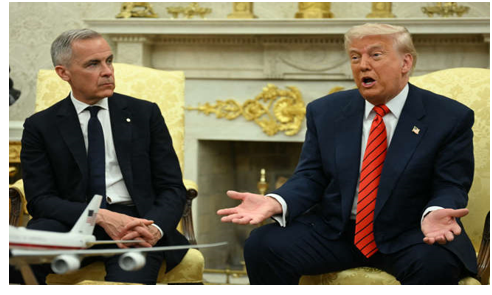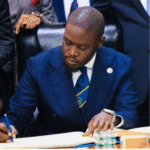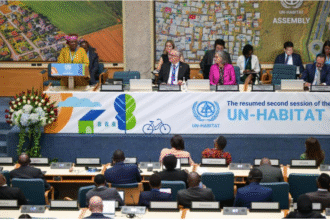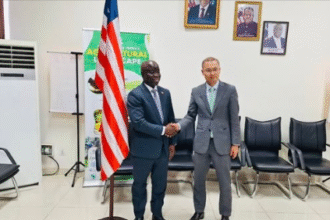By Emily Sims
WASHINGTON, D.C. – The relationship between the United States and Canada has become increasingly strained since the beginning of 2025, leaving many wondering when, or if, the two North American neighbors will find common ground again. However, the upcoming 2026 FIFA World Cup, co-hosted by the US, Canada, and Mexico, may offer an unexpected opportunity for reconciliation.
Tensions escalated significantly in January 2025 when Donald Trump began his second term as U.S. President. His rhetoric surrounding Canada, previously used during his 2024 presidential campaign, became increasingly provocative. The President, as reported by several news outlets, has repeatedly referred to Canada as a potential “51st state,” and even referred to then-Prime Minister Justin Trudeau as a “governor.” Despite a change in Canadian leadership with Mark Carney taking the helm in 2025, the rhetoric from the White House has not softened.
In a May meeting at the Oval Office, President Trump further fueled concerns, stating, “I say, ‘Never say never’” when questioned about acquiring Canada. He added, “I’ve had many, many things that were not doable and ended up being doable.” The sentiment has been echoed with the implementation of tariffs on Canada and other nations, further exacerbating the already tense relationship.
However, amidst the political turmoil, the 2026 World Cup presents a potentially significant opportunity for unity. Co-hosting the world’s largest sporting event demands a level of international cooperation that could transcend political divides. With stadiums across all three North American nations hosting matches, the tournament will inevitably bring fans from around the globe to the continent.
“This is a unique situation,” explains political analyst Dr. Emily Carter. “Hosting the World Cup together requires a degree of collaboration that could force both the U.S. and Canada to put aside their current differences, at least temporarily, for the sake of the event’s success.”
One critical area for cooperation will be facilitating the movement of fans between the three host countries. International visitors may choose to travel across borders to attend multiple games and watch parties. Consequently, the three nations will need to establish seamless travel policies and logistical support to ensure a positive experience for all attendees.
This marks the first time in World Cup history that the tournament is co-hosted by three countries, and the first time since 2002 that the event is being hosted by more than one. The stakes are high, and the potential for success rests on the ability of the US, Canada, and Mexico to effectively manage the logistical and collaborative challenges.
Ultimately, the success of the 2026 World Cup could depend on whether the spirit of the game triumphs over political friction. It remains to be seen if the shared experience of hosting the world’s biggest soccer tournament will serve as a catalyst for improved relations between the United States and Canada, or if the existing tensions will overshadow the event itself. All eyes are on North America as the countdown to kickoff begins.









